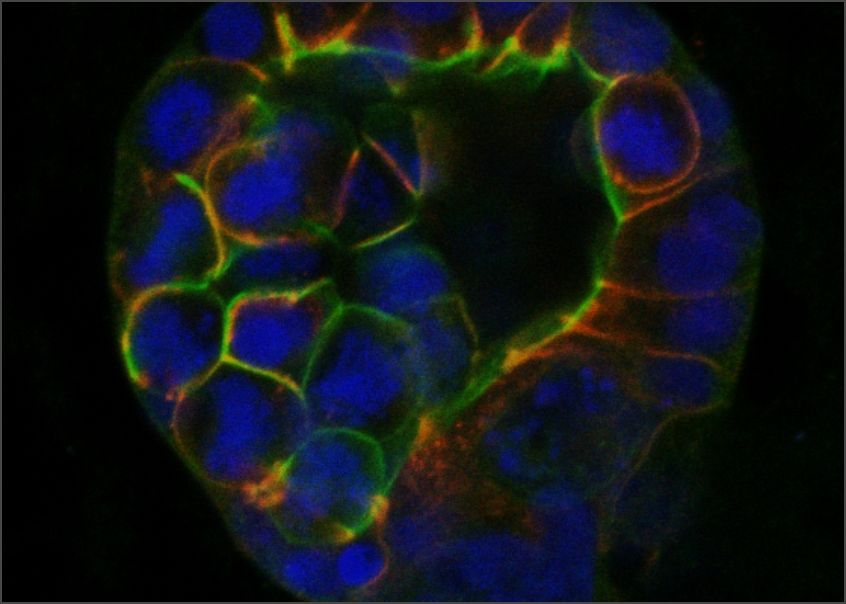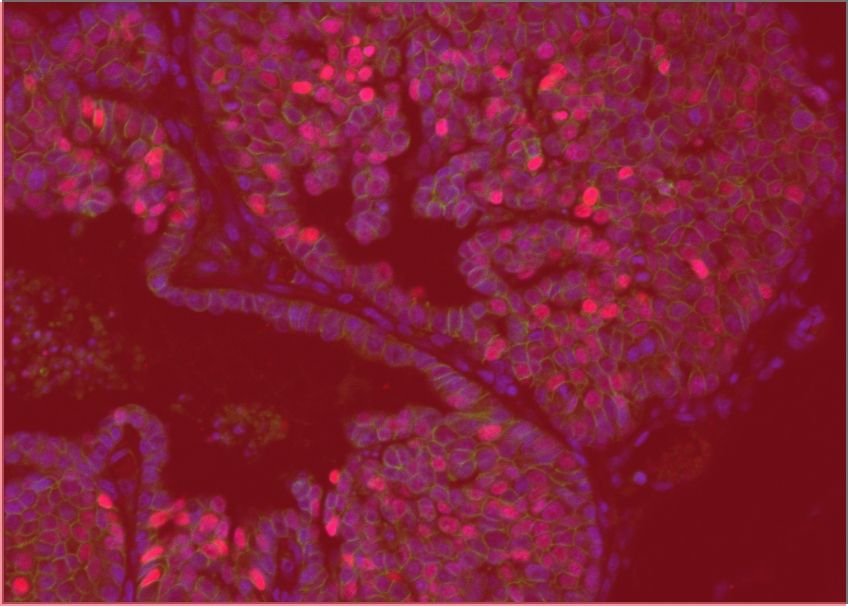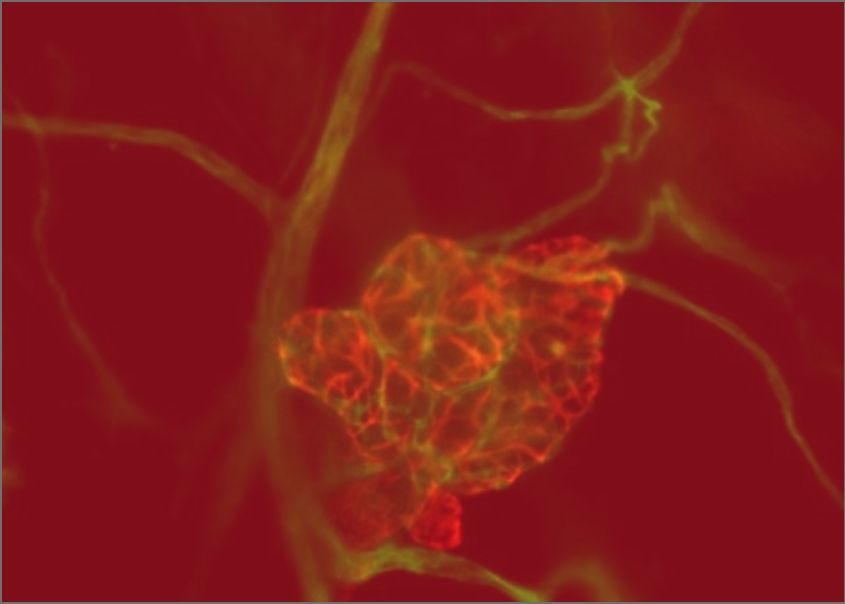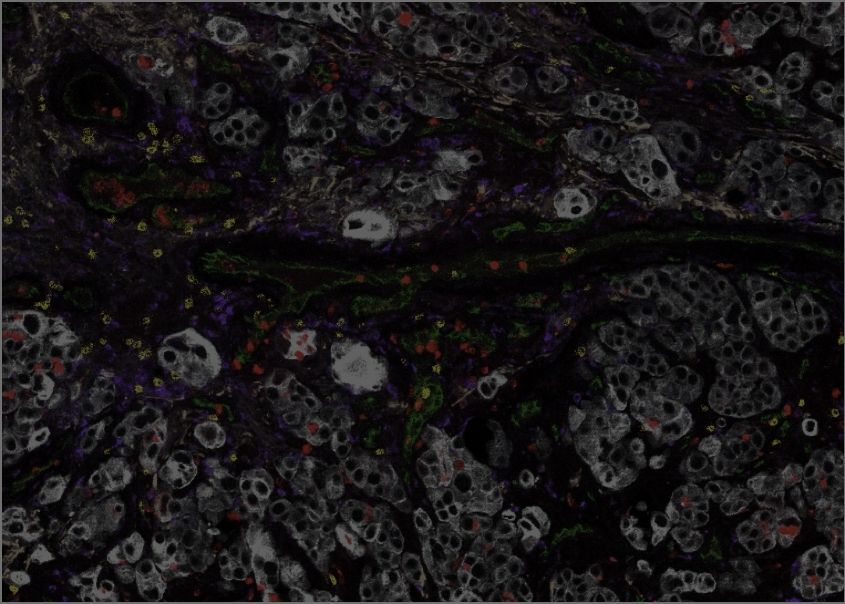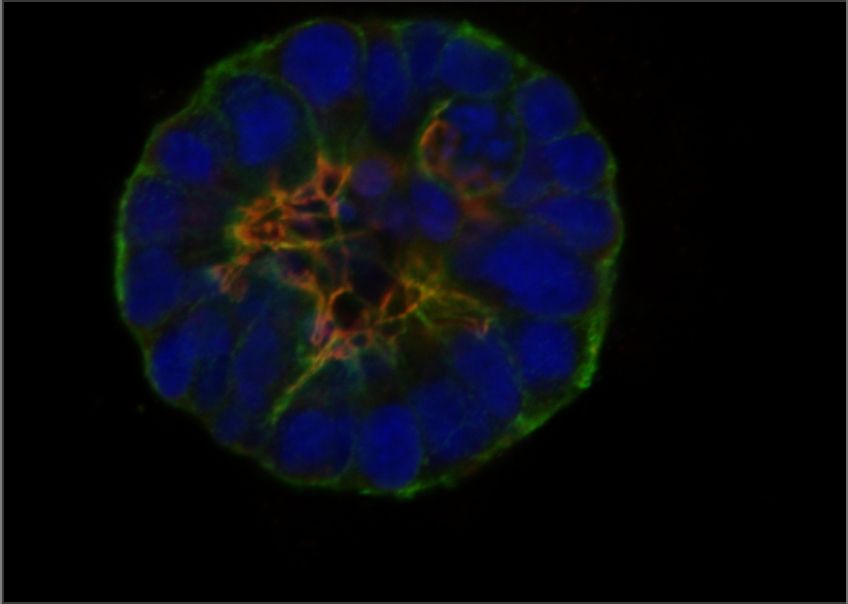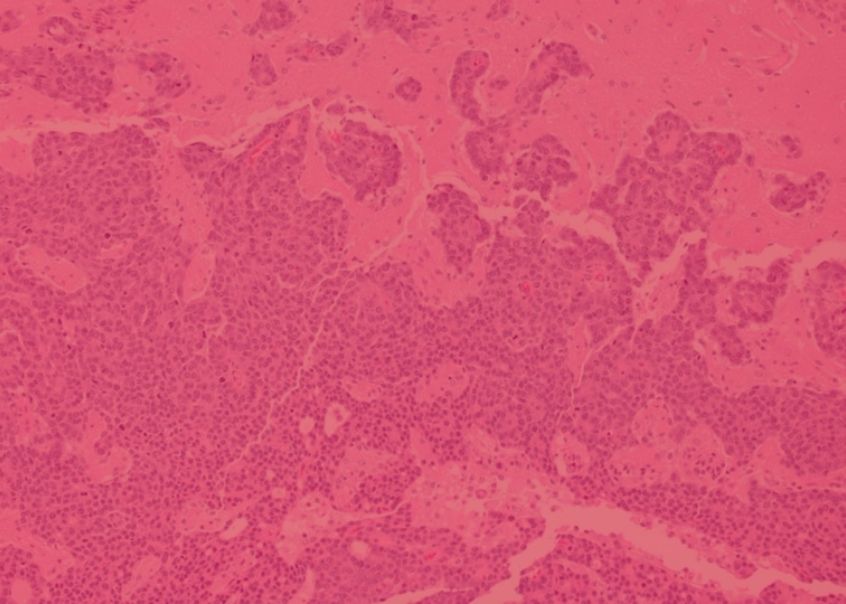
The GCI
Research Mission
Research at the GCI addresses unmet clinical needs in cancer by discovering how tumours initiate and progress, identifying their weaknesses, and developing strategies to target them. We are a hub of broad, multidisciplinary networks linking the laboratory and the clinic, working together to use the knowledge gained from fundamental investigation to improve outcomes for cancer patients.
Discover the mechanisms
that drive cancer
GCI research integrates advanced technology with computational biology and AI, unique samples and data from our clinical partners, and state-of-the-art cancer modelling to discover the genomic changes, signaling pathways, microenvironmental factors and environmental influences (such as diet and lifestyle) underlying cancer initiation and progression. Our collaborative, interdisciplinary approach reveals how these cancer drivers work and interact at the molecular, cellular, and whole-organism levels, leading to new therapeutic targets and breakthroughs for hard-to-treat cancers.
Create new ways to
understand cancer
Where existing technology cannot answer the questions or provide the insight we need, GCI investigators develop new methods and next generation technologies to pinpoint cancer’s driving factors and expose its therapeutic vulnerabilities. We are pioneers of many techniques now used around the world to understand cancer at a fundamental level, designers of complex models that capture all aspects of cancer biology and physiology, and developers of “big data” technologies, AI and computational medicine approaches to unravel the molecular and cellular complexities of cancer.
Advance precision cancer medicine
and lead biomarker discovery
Cancer encompasses a wide spectrum of diseases with distinct genomic and biological characteristics. Precision medicine aims to predict whether cancer subtypes will respond to or resist therapies and match patients with the best treatment. Based on our fundamental knowledge, and empowered by our network of clinical partnerships, we use “-omics” technologies, cutting-edge imaging, metabolic analysis, and AI to uncover measurable indicators, or biomarkers, associated with progression and drug response or resistance in specific cancers. This leads to new and better ways to predict risks and outcomes, and to match patients with the best treatments. Our ability to model distinct cancer subtypes in the lab, including rare and hard-to-treat forms of the disease, validates key clinical observations and reveals the mechanisms behind them. It also allows us to advance precision cancer medicine by discovering and testing new, more effective therapies for hard-to-treat cancers in the most accurate ways possible.
GCI Research Areas
We work primarily within six Research Areas, focusing on key challenges in cancer
research and leveraging the unique and diverse strengths of our community.

